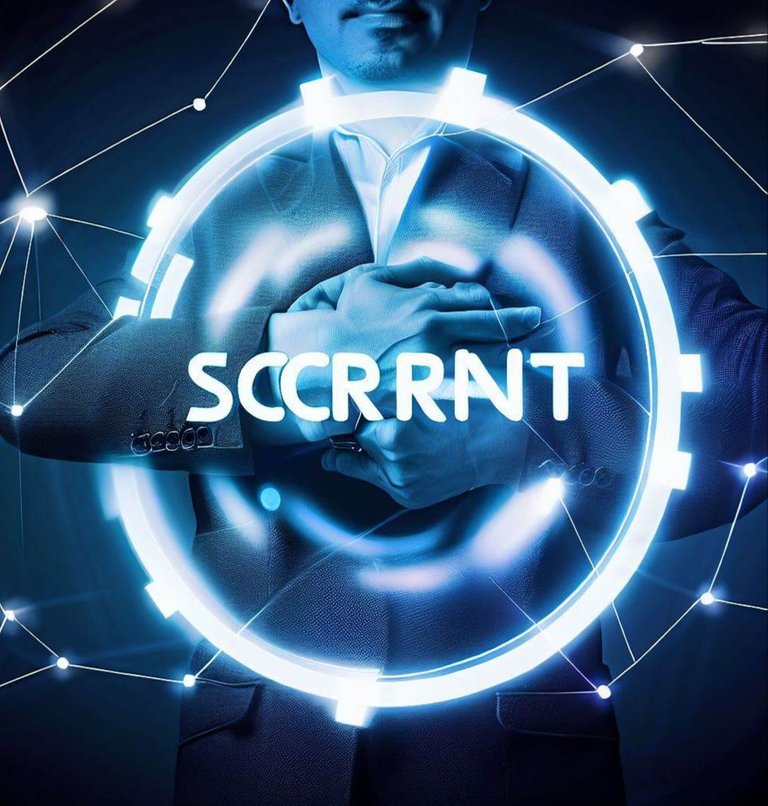
Un Smart Contract o Contrato Inteligente es un programa informático que se ejecuta en una red blockchain y que permite automatizar acuerdos entre partes sin intermediarios ni confianza. Un Smart Contract se puede entender como un contrato digital que tiene unas condiciones preestablecidas que se cumplen automáticamente cuando se dan las circunstancias adecuadas. Por ejemplo, si A le presta dinero a B y B se compromete a devolverlo con intereses en una fecha determinada, el Smart Contract se encarga de transferir el dinero de A a B al inicio y de B a A al final.
A Smart Contract or Intelligent Contract is a computer program that runs on a blockchain network and that allows automating agreements between parties without intermediaries or trust.A Smart Contract can be understood as a digital contract that has pre-established conditions that are automatically fulfilled when the appropriate circumstances occur. For example, if A lends money to B and B agrees to repay it with interest on a certain date, the Smart Contract is responsible for transferring the money from A to B at the beginning and from B to A at the end.

Los Smart Contracts tienen muchas ventajas, como la rapidez, la seguridad, la transparencia, la eficiencia y la reducción de costes. Sin embargo, también tienen algunos desafíos, como la complejidad técnica, la falta de regulación, la responsabilidad legal y la adaptación a los cambios. Para crear y ejecutar un Smart Contract se necesita una red blockchain que lo soporte, como Ethereum, Cardano o Binance Smart Chain. Estas redes son plataformas descentralizadas que permiten a los desarrolladores crear aplicaciones basadas en Smart Contracts usando lenguajes de programación específicos.
Smart Contracts have many advantages, such as speed, security, transparency, efficiency and cost reduction. However, they also have some challenges, such as technical complexity, lack of regulation, legal liability, and adaptation to changes. To create and execute a Smart Contract you need a blockchain network that supports it, such as Ethereum, Cardano or Binance Smart Chain. These networks are decentralized platforms that allow developers to create applications based on Smart Contracts using specific programming languages.
Los Smart Contracts se almacenan en la blockchain como código binario y se activan cuando se envía una transacción a su dirección. Cada transacción tiene un costo en forma de gas o comisión que se paga con la criptomoneda nativa de la red.
Pueden interactuar entre sí y con otros servicios externos mediante oráculos, que son agentes que proveen información verificable desde el mundo real.
Smart Contracts are stored on the blockchain as binary code and are activated when a transaction is sent to your address. Each transaction has a cost in the form of gas or commission that is paid with the native cryptocurrency of the network.
They can interact with each other and with other external services through oracles, which are agents that provide verifiable information from the real world.

Los Smart Contracts pueden tener múltiples aplicaciones en diversos sectores, como las finanzas, el comercio, la logística, la salud, la educación, el arte, los videojuegos y las redes sociales. Algunos ejemplos de proyectos basados en Smart Contracts son:
- Uniswap: una plataforma de intercambio descentralizado de criptomonedas que usa un algoritmo para determinar el precio y el volumen de cada par.
- Chainlink: una red de oráculos descentralizados que provee datos confiables a los Smart Contracts desde diversas fuentes.
- CryptoKitties: un juego de coleccionar y criar gatos virtuales únicos e irrepetibles que se representan como NFT (Non-Fungible Tokens).
En conclusión, los Smart Contracts son una herramienta poderosa e innovadora que abre nuevas posibilidades para el desarrollo de aplicaciones descentralizadas y para la transformación digital de la sociedad.
Smart Contracts can have multiple applications in various sectors, such as finance, commerce, logistics, health, education, art, video games and social networks. Some examples of projects based on Smart Contracts are:
- Uniswap: a decentralized cryptocurrency exchange platform that uses an algorithm to determine the price and volume of each pair.
- Chainlink: a network of decentralized oracles that provides reliable data to Smart Contracts from various sources.
- CryptoKitties: a game of collecting and raising unique and unrepeatable virtual cats that are represented as NFTs (Non-Fungible Tokens).
In conclusion, Smart Contracts are a powerful and innovative tool that opens up new possibilities for the development of decentralized applications and for the digital transformation of society.
Great article!